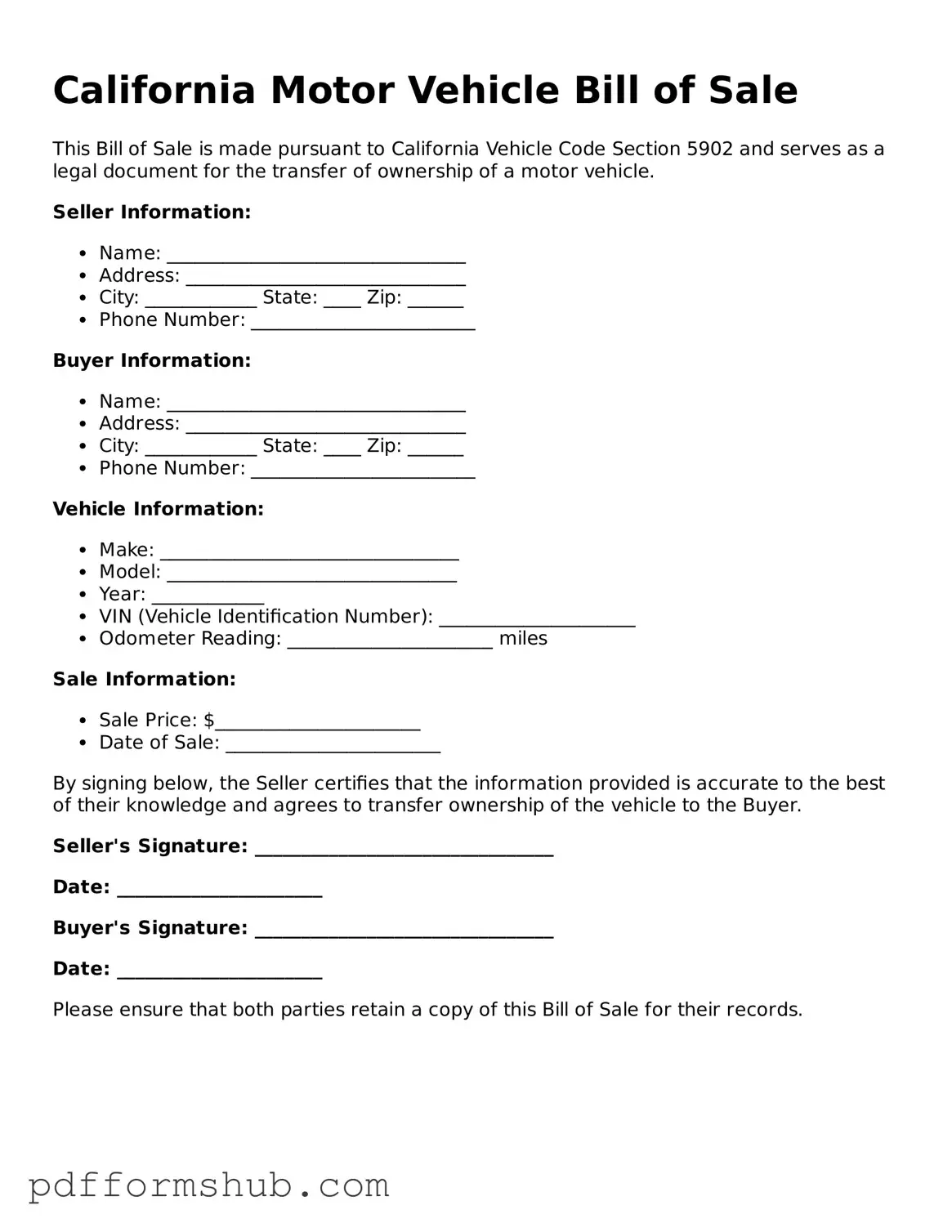Attorney-Verified Motor Vehicle Bill of Sale Form for California State
The California Motor Vehicle Bill of Sale form is a crucial document that records the transfer of ownership for a vehicle. This form protects both the buyer and seller by providing a clear record of the transaction. Understanding how to fill it out correctly can make your vehicle sale or purchase much smoother, so be sure to complete the form by clicking the button below.
Customize Form

Attorney-Verified Motor Vehicle Bill of Sale Form for California State
Customize Form

Customize Form
or
Free PDF Form
Short deadline? Complete this form now
Complete Motor Vehicle Bill of Sale online without printing hassles.